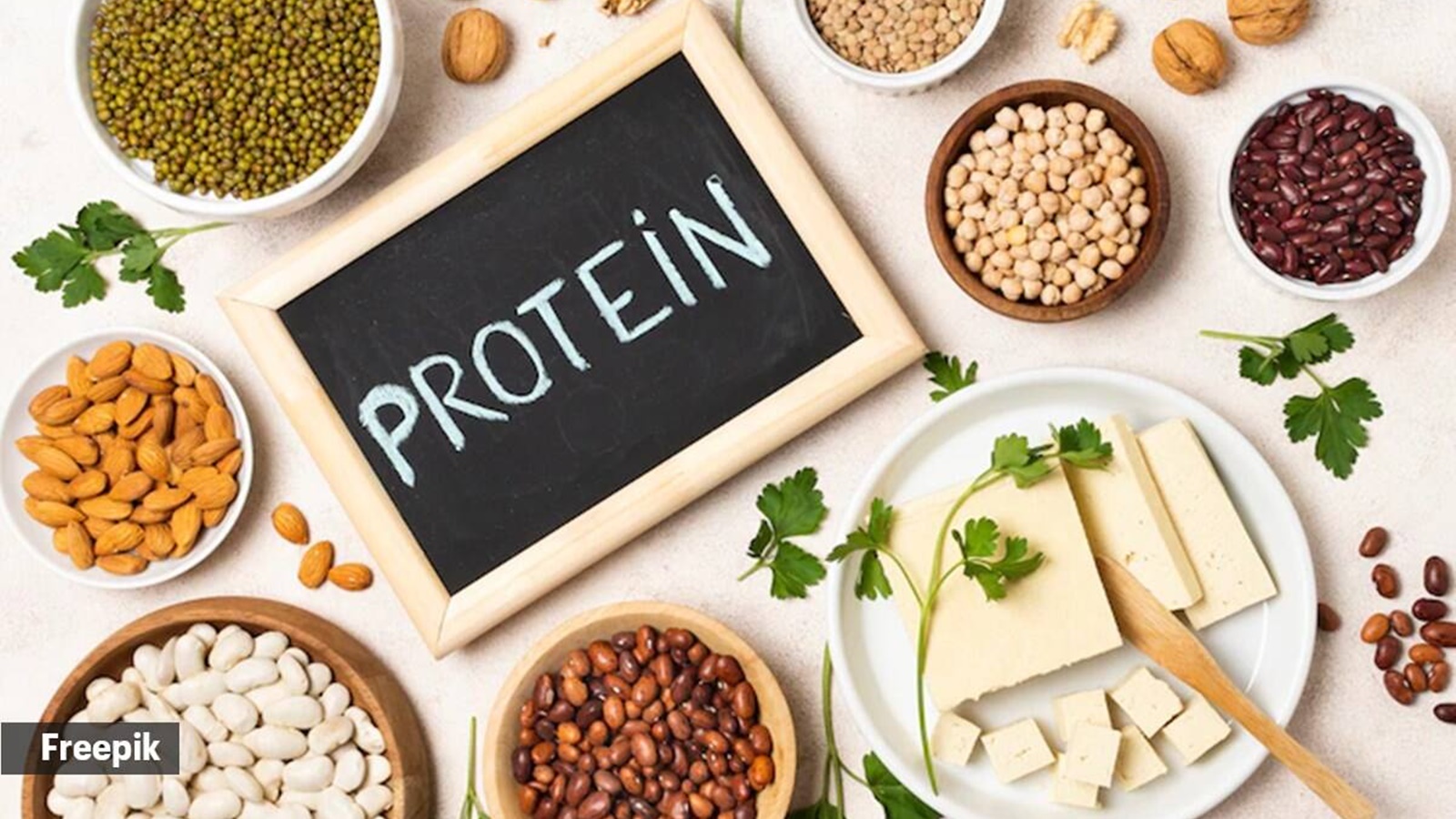📣 For more lifestyle news, click here to join our WhatsApp Channel and also follow us on Instagram
Are you getting all the proteins you need every day?
According to Dr Shuchin Bajaj, founder director, Ujala Cygnus Group of Hospitals, protein supports muscle growth, repair, and maintenance, aids in weight management by promoting satiety, and contributes to enzyme and hormone production.
 Strategic meal planning can help you distribute your protein intake evenly throughout the day. (Source: Freepik)
Strategic meal planning can help you distribute your protein intake evenly throughout the day. (Source: Freepik)In the quest for a healthy and balanced diet, ensuring you meet your daily protein requirements is a crucial aspect of overall well-being. Proteins are the building blocks of life, playing a fundamental role in muscle development, immune function, and various metabolic processes.
According to Dr Shuchin Bajaj, founder director, Ujala Cygnus Group of Hospitals, protein supports muscle growth, repair, and maintenance, aids in weight management by promoting satiety, and contributes to enzyme and hormone production.
Understand Your Protein Needs
Before diving into dietary adjustments, it’s essential to understand your protein requirements. Factors such as age, weight, activity level, and health goals influence the amount of protein your body needs.
According to Ekta Singhwal, dietician, Ujala Cygnus Group of Hospitals, the protein requirement for adults varies, but a general guideline is 0.8 to 1.2 grams per kilogram of body weight. “Active individuals may lean towards the higher end.”
 Nuts, particularly walnuts, are packed with good or monounsaturated and polyunsaturated fat, vitamins, antioxidants, key minerals, fibre and protein. (Representative Photo/Getty)
Nuts, particularly walnuts, are packed with good or monounsaturated and polyunsaturated fat, vitamins, antioxidants, key minerals, fibre and protein. (Representative Photo/Getty)
For men, this may range from 56-91 grams, and for women, 46-75 grams per day, depending on factors like activity level and health, she added.
Consult with a healthcare professional or a registered dietitian to determine a personalised protein target that aligns with your lifestyle.
Incorporate a Variety of Protein Sources
Achieving a well-rounded protein intake involves diversifying your protein sources. While animal products like lean meats, poultry, and fish are excellent protein providers, plant-based sources such as beans, lentils, tofu, and quinoa can be equally effective. Including a variety of protein-rich foods ensures you receive a spectrum of essential amino acids crucial for bodily functions.
Protein shakes or bars can supplement if necessary, said Dr Bajaj.
Strategic meal planning can help you distribute your protein intake evenly throughout the day. Instead of loading up on proteins during one meal, consider incorporating protein-rich options into each meal and snack. This approach aids in better digestion and utilisation of amino acids by the body.
Are there any side effects of eating too much protein?
While protein is essential, excessive intake may strain kidneys and lead to nutrient imbalances, Dr Bajaj said. “A balanced approach is key; excessive supplementation may have adverse effects. Aim for a well-rounded diet.”
Singhwal noted that it’s generally advisable not to exceed 2.2 grams of protein per kilogram of body weight.
By incorporating these practical tips into your daily routine, you can ensure that you meet your body’s protein requirements, paving the way for improved health, vitality, and overall well-being.
📣 For more lifestyle news, click here to join our WhatsApp Channel and also follow us on Instagram
- 01
- 02
- 03
- 04
- 05



























